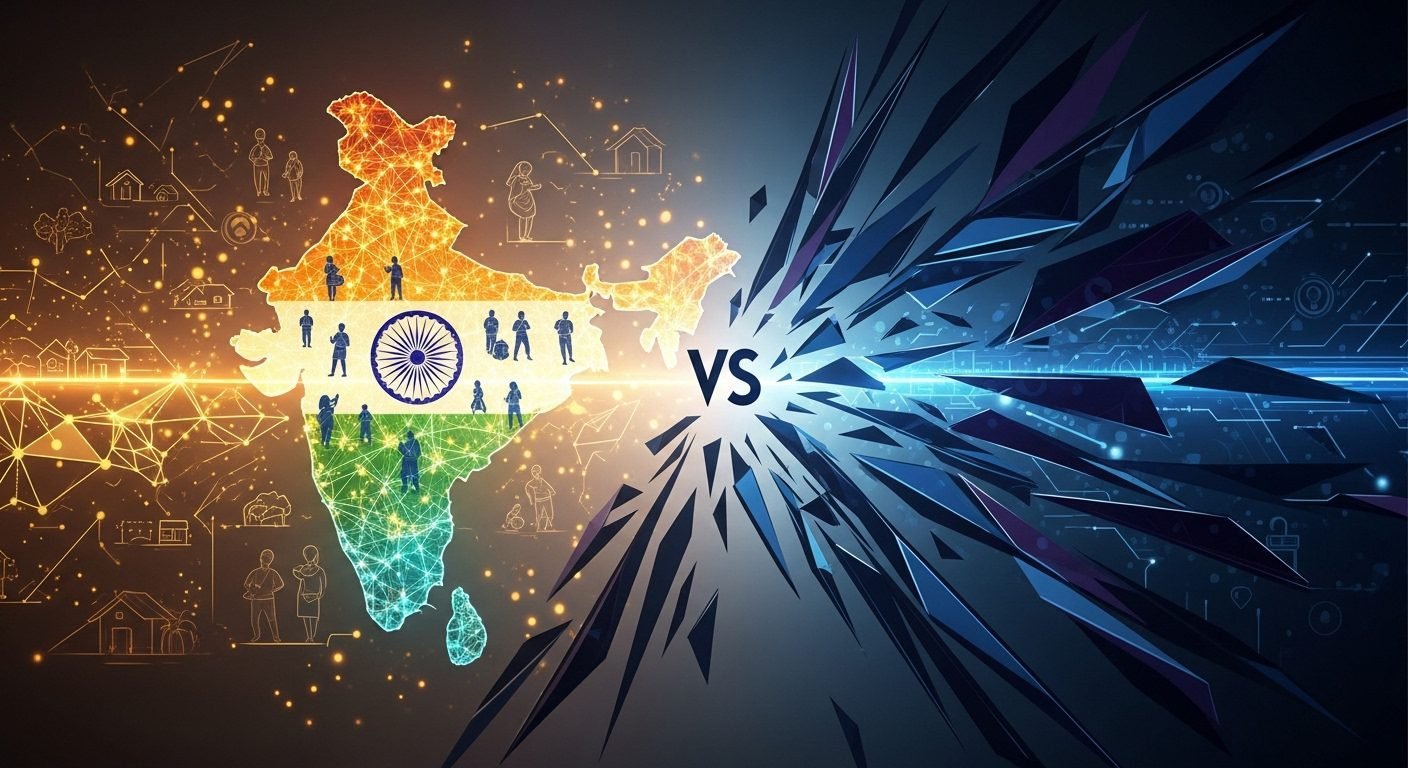The foundational pillars of the artificial intelligence market are currently being tested, as Elon Musk’s xAI has initiated an antitrust lawsuit against tech giants Apple and OpenAI. Filed in a Texas federal court on August 25, 2025, the 61-page complaint alleges monopolistic practices and an illegal conspiracy to control AI integration within smartphone devices, specifically accusing Apple of unfairly favoring OpenAI’s ChatGPT. This high-stakes legal battle could redefine the future of AI accessibility and competition, carrying significant implications for the broader tech ecosystem, including the rapidly evolving fintech sector.
Decoding the Allegations: The Battle for AI’s Open Future
At its core, Musk’s lawsuit frames the partnership between Apple and OpenAI as a “tale of two monopolists joining forces to ensure their continued dominance” in the AI-driven world. The complaint posits that Apple views AI as an “existential threat” to its iPhone franchise, its primary moneymaker, and has thus colluded with OpenAI to protect its market position. Specifically, xAI alleges that Apple’s exclusive deal with OpenAI prevents the more prominent featuring of competing AI apps, such as xAI’s Grok chatbot, in the App Store. This isn’t merely a corporate spat; it’s a direct challenge to the mechanisms of AI distribution and user access, arguing that such arrangements stifle innovation and limit consumer choice.
The financial sector, heavily investing in AI for everything from algorithmic trading to fraud detection and personalized banking, watches these developments closely. A constricted AI competitive landscape could lead to less diverse, more expensive, or less innovative AI tools becoming standard, potentially impacting the agility and innovation of fintech companies reliant on advanced AI models. The suit suggests that if Apple had not entered into this exclusive deal, it would have no reason to refrain from promoting other AI applications more prominently. This argument underscores the critical role platform providers play in shaping the market for emerging technologies.
Regulatory Headwinds Meet Market Dynamics: An Intersecting Narrative
This announcement doesn’t exist in a vacuum. It reflects and amplifies the ongoing global push for AI regulation from earlier this year, signaling a growing intersection between market dynamics and legislative scrutiny. For instance, the European Union’s landmark AI Act, the world’s first comprehensive legal framework for AI, has been undergoing phased implementation, with obligations for providers of general-purpose AI models becoming applicable on August 2, 2025. This legislation aims to foster trustworthy AI by categorizing systems based on risk and imposing varying levels of compliance requirements, including transparency and copyright rules for generative AI like ChatGPT.
The EU AI Act’s focus on transparency, risk assessments, and ensuring fair practices directly contrasts with the monopolistic behaviors alleged in Musk’s lawsuit. While the EU’s legislative efforts aim to create a level playing field and safeguard fundamental rights, Musk’s legal action addresses potential market distortions by dominant players. Even in the United States, states like Colorado have introduced their own AI anti-discrimination laws, requiring notification when consumers interact with AI systems and holding developers jointly responsible for legal violations under certain conditions.
The confluence of these events – a high-profile antitrust lawsuit targeting major AI players and the continuous rollout of stringent AI regulations worldwide – paints a clear picture: the wild west days of AI development are over. The industry is moving into an era where both market power and ethical deployment will be subject to intense scrutiny. For fintech, this means not only navigating the technological advancements but also understanding the complex interplay of legal challenges and regulatory frameworks that will ultimately dictate the availability, cost, and ethical use of the AI tools they depend on.












перепланировка и согласование http://www.pereplanirovka-nezhilogo-pomeshcheniya9.ru .
взять в аренду мини экскаватор взять в аренду мини экскаватор .
потолочки https://stretch-ceilings-nizhniy-novgorod.ru/ .
услуги по согласованию перепланировки квартиры http://www.soglasovanie-pereplanirovki-kvartiry3.ru .
russian seo https://reiting-seo-agentstv.ru .
топ 10 сео продвижение топ 10 сео продвижение .
1xbet giris 1xbet-giris-1.com .
1xbet tr 1xbet tr .
1xbwt giri? http://www.1xbet-4.com/ .
1xbet tr giri? 1xbet-10.com .
изготовление кухонь на заказ в санкт петербурге kuhni-spb-2.ru .
мед оборудование мед оборудование .
наркологические клиники москва http://narkologicheskaya-klinika-24.ru/ .
мелбет сайт мелбет сайт .
материалы по маркетингу http://www.statyi-o-marketinge7.ru/ .
seo бесплатно seo бесплатно .
заказать трансляцию мероприятия http://www.zakazat-onlayn-translyaciyu5.ru/ .
топ интернет агентств москвы топ интернет агентств москвы .
https://t.me/s/Official_1xbet1/1652
Вам нужно узнать вин код рено логан 1 где находится? В 1win проще простого — сделайте минимальный депозит всего 100?, получите до 3000 бонусных рублей за первый депозит, участвуйте в лайв-ставках и слотах с высокими коэффициентами, а также используйте промокод для мгновенных фриспинов и кэшбэка. Быстрые выплаты, круглосуточный доступ и реальный выигрыш — всё в вашем личном кабинете для максимальной выгоды!
https://t.me/s/ef_beef
Visit Site – Layout is crisp, browsing is easy, and content feels trustworthy and clear.
Slot tại 888slot có cơ chế “turbo spin” – quay nhanh gấp đôi tốc độ thường, phù hợp với người chơi thích nhịp độ cao và không muốn chờ đợi. TONY01-06H
explore learning paths – Nice pacing, making it simple to pick up new ideas.
AllianceDevelopmentPro – Encourages structured thinking around enterprise alliances.
BudgetSaverNetwork – Offers practical options for price-conscious online shoppers.
AffordableShopLink – Designed for users who want the best deals online.
SavvyBuyHub – Encourages smart spending with high-value shopping choices.
PlavexAccess – Fast-loading pages, minimal design, and navigation simple.
CreativeEdgeHub – Fun and informative platform, concepts are explained clearly and accessibly.
SecureShopHub – Practical and user-friendly, online shopping is fast and safe.
TrustedMarketHub – Reliable and easy to use, online shopping is hassle-free and safe.
xelio network – Minimal clutter, fast navigation, and text is easy to digest
Read more online – The site leaves a positive impression with its clear and simple explanations.
bavlo platform – Easy-to-follow interface, content is simple to digest, and smooth browsing
ideas guide – Clear phrasing encourages acting on ideas without overcomplication.
bond resources page – Content is clear and structured, making browsing straightforward.
focus in action – Theme emphasizes concentration, making content feel precise and purposeful.
official portal – Smooth navigation, clear sections, and no distracting elements.
discover clarity – Text promotes clarity-driven speed for actionable outcomes.
clarity portal guide – Messaging emphasizes actionable insight with clarity at the center.
sociallinkportal – Makes connecting with others simple and intuitive.
smartgreenenergy – Practical tips that are easy to integrate into everyday routines.
enterpriseconnecthub – Found practical solutions that simplified collaboration across departments.
businesslinkhub – Makes building strategic partnerships straightforward and effective.
businessalliancescenter – Alliance resources are excellent, really improved how I plan networking activities.
Aurora collection – Nice selection and intuitive navigation make it easy to shop.
Arc Loom picks – Always fun to browse, there’s usually something unexpected.
Garage essentials – Well-organized site with a variety of automotive supplies.
charmcartel.shop – Unique designs and fast navigation, love shopping here every time.
Quenvia Spot – Stylish and neat, finding items and paying was simple and fast.
Run River Hub – Pleasant site design, categories are easy to navigate and checkout went without issues.
Shop Prime Parcel – Quick shipping, browsing the store was smooth and easy.
Opal Ornate Store – Gorgeous designs and an enjoyable browsing experience, everything looks refined.
clovecrest.shop – Fantastic assortment of products, and everything is laid out perfectly for easy browsing.
fiorvyn.shop – A wonderful range of products and a seamless shopping experience every time.
Pendant Port Finds – Elegant accessories, browsing the collection felt smooth and polished.
Prism Vane Online – Attractive products, images are clear and site layout is easy to use.
Pantry Pebble Spot – Lovely setup, browsing products was fast and simple.
Silvaneo Collection – Trendy items, browsing the site was simple and checkout went very smoothly.
Global Gear Online Hub – Intuitive layout and organized pages made browsing effortless.
invoicemart.shop – Great checkout process, and the product information was detailed and easy to digest.